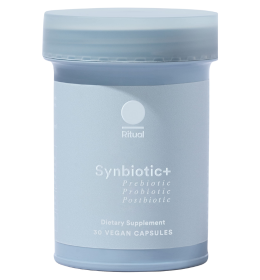
Diarrhea, often dismissed as a mere inconvenience, is a serious digestive condition that can disrupt daily life. Diabetes, known scientifically as diabetes mellitus, is a metabolic condition that affects blood sugar levels.
But what happens when these two conditions intersect? Does insulin cause diarrhea? The relationship between type 1 or type 2 diabetes and diarrhea is intricate, with medications like Metformin sometimes being the culprits. Conditions like autonomic neuropathy linked to diabetes can also lead to chronic diarrhea. Awareness of this connection is paramount. It’s beyond symptoms; it’s grasping the root causes.
From modern diabetes diagnosis methods to addressing diarrhea in people with diabetes, it emphasizes the importance of a tailored approach, considering diet, medications, and lifestyle changes.
Can Diabetes Cause Diarrhea?
Yes. This connection stems from various factors, including the side effects of diabetes medications. High blood sugar levels can also disrupt the digestive tract, leading to diarrhea. Understanding this link is essential for effective diabetes management and ensuring overall digestive health.
- Diarrhea is a frequent digestive issue, often linked to diabetes.
- Diabetic diarrhea can be a side effect of medications like Metformin.
- Conditions like autonomic neuropathy linked to diabetes can cause chronic diarrhea.
- High blood sugar levels can lead to bacterial overgrowth in the digestive tract, causing diarrhea.
- Celiac disease, an autoimmune condition, can coexist with diabetes, leading to gastrointestinal symptoms.
How Are Diarrhea And Diabetes Connected?
FEATURED PARTNER OFFER

Ritual Synbiotic+
- 3-in-1 formula: prebiotics, probiotics, and probiotics
- Supports a balanced gut microbiome
- Supports bloating, gas, and diarrhea
- Supports the growth of beneficial gut bacteria
- Vegan and Third-party tested
What Is Diarrhea?

Diarrhea isn’t just an inconvenient bathroom issue; it’s a digestive condition that turns your life upside down.
Diarrhea symptoms include running to the restroom with loose or watery stools more than three times a day; you’re in the realm[1] of acute diarrhea. Acute diarrhea is usually short-lived. However, chronic diarrhea can extend for weeks,[2] possibly indicating deeper issues[3] like celiac disease or bacterial overgrowth in the[4] digestive tract. Sometimes, people may experience morning diarrhea due to disrupted eating habits or conditions like irritable bowel syndrome.
What Is Diabetes?

Diabetes, scientifically known[5] as diabetes mellitus, isn’t merely about a sweet tooth gone awry — it’s a metabolic juggernaut that messes with your blood sugar.
In Type 1, your pancreas throws in the towel, producing little to no insulin. Type 2 is more of a miscommunication — your body makes insulin but doesn’t know how to use it effectively. And let’s not forget gestational diabetes, the unwelcome guest during pregnancy[6] that usually exits post-childbirth.
Why Understanding The Connection Is Important
The link between diarrhea and diabetes is a complex relationship with health implications. Diabetic diarrhea can often be a side effect[7] of diabetes medication like Metformin.
It can also result from conditions like autonomic neuropathy or exocrine pancreatic insufficiency, which affects[8] the nerves and enzymes in the digestive system. Understanding this connection is crucial for several reasons.
Chronic diarrhea can lead to dehydration,[9] loss of control[10]of anal sphincter muscles to hold the feces or gas, called fecal incontinence, and nutrient loss.[11] It can also be a red flag for poorly managed diabetes, which could lead to complications like diabetic neuropathy.
Awareness of these risk factors allows for more targeted treatment options, ultimately aiding in better diabetes management.
What Causes Diabetes-Related Diarrhea?
Autonomic neuropathy often takes the lead. This nerve damage, linked to diabetes mellitus, wreaks havoc[12] on your digestive system. The result? Chronic diarrhea and, in some cases, fecal incontinence.
But let’s not overlook celiac disease. It’s an autoimmune condition that can tag along[13] with type 1 diabetes, which is also an autoimmune condition. It brings its own set of gastrointestinal symptoms, diarrhea included.
Medications for diabetes can be double-edged swords. While regulating blood sugar, some can disrupt[14] bowel movements. Exocrine pancreatic insufficiency is another culprit. This condition increases the risk[15] of severe diabetic diarrhea.
Diabetic neuropathy complicates matters further. It can lead to a range of gastrointestinal complications, including diarrhea.[16] And don’t forget about sugar alcohols, including sweeteners like xylitol or sorbitol found in diabetic-friendly foods, and they can also trigger diarrhea.[17]
Treatments For Diarrhea
Diarrhea can be distressing, especially for those with diabetes. Immediate relief is often the first concern. Over-the-counter medications offer quick Diarrhea treatment. However, they’re not a long-term solution.
For sustained relief, consider your diet. A Healthy diet can significantly impact digestive health. Incorporate soluble fibers to regulate bowel movements, but the type of fiber is important.
Diarrhea foods should include viscous soluble fibers.[18] For example, foods high in FODMAPs, fermentable oligosaccharides, disaccharides, monosaccharides, and polyols may worsen the diarrhea condition. Therefore, the FODMAP diet is a treatment protocol for those with digestive and kidney diseases. Also, coffee, tea, or caffeinated drinks worsen the diarrhea.
Occasionally, you might experience diarrhea after taking antibiotics. This is where probiotics play a crucial role.[19] They balance gut flora, improving gut health. You can find them in Probiotic foods or as supplements.
Digestive health supplements can be beneficial for those with chronic issues. They often contain various enzymes that aid digestion.
If constipation accompanies your diarrhea, a specialized Probiotic for constipation may help.
Treatment isn’t one-size-fits-all. It’s a blend of immediate relief and long-term lifestyle changes. Always consult a healthcare provider for a tailored treatment plan.
How To Diagnose Diabetes
Diagnosing diabetes[20] has evolved over the years. Historically, the diagnosis of diabetes mellitus hinged on blood glucose measurements. It was a clear indicator of whether someone displayed typical symptoms. Symptoms include fasting plasma glucose of ≥126 milligrams per deciliter or random plasma glucose of ≥200 milligrams per deciliter during a glucose tolerance test.
However, the winds of change have brought in the hemoglobin A1c test, also known as the HbA1c. Endorsed by esteemed bodies like the American Diabetes Association, this test gauges the non-enzymatic glycation of hemoglobin. It shows average blood glucose levels spanning the last three months. An HbA1c threshold of ≥6.5% — mirroring an estimated average glucose of 140 milligrams per deciliter — is a red flag.
What’s commendable about the HbA1c test? No fasting is required! It boasts superior stability and consistency, especially during illness or stress.
But, like all things, it’s not without its challenges. It’s pricier than blood glucose tests and might be scarce in developing regions. Moreover, it can be deceptive in patients with specific anemias or hemoglobinopathies, affecting the lifespan of red blood cells. In such cases, glucose criteria come to the rescue.
In the grand scheme, while both glucose and HbA1c criteria stand tall for diabetes diagnosis, typically, one suffices, especially when symptoms like polyuria, polydipsia, weight loss, and fatigue are evident.
Prevention
Navigating diabetes is already a journey, and when diarrhea enters the scene. Hydration is critical. So, make water your go-to drink.
It’s vital to monitor your glucose levels more frequently during this time, adjusting medications as necessary. Simplicity is key when it comes to food. Embrace a bland diet with staples like toast, rice, and bananas,[21] and consider taking a break from fatty, spicy foods and dairy.
When To Seek Professional Help
Consult your doctor for your optimum treatment protocol. Probiotics, those friendly gut bacteria found in yogurt or supplements, can be a game-changer in restoring balance. And don’t forget the power of rest; your body is working overtime, so give it the downtime it deserves.
Lastly, if the diarrhea lingers or takes a more severe turn, like the appearance of blood, take immediate professional care. Diabetes might add an extra layer to the challenge, but you can manage and even conquer this hurdle with knowledge and proactive steps.
Diabetic diarrhea and vomiting can lead to dehydration and nutrient loss and can be a red flag for poorly managed diabetes. It’s not just about comfort; it’s about preventing complications like diabetic neuropathy.
Conclusion
The dance between diabetes and diarrhea is intricate. While each stands as a distinct health concern, their intersection can be a challenging terrain. Diarrhea isn’t just about frequent bathroom trips — it’s a signpost, sometimes pointing to deeper digestive dilemmas. Diabetes, on the other hand, is a metabolic powerhouse, influencing far more than our sugar levels.
Grasping this interplay is essential. It’s about holistic health, not just symptom relief. The factors weaving these conditions together range from medications to nerve disruptions, making each person’s experience unique.
Whether you’re navigating diabetes, diarrhea, or the crossroads of both, remember to make informed decisions and seek expert guidance.
Frequently Asked Questions
Can diarrhea be a symptom of diabetes?
Yes, diarrhea can be a diabetes-related complication.
What are the bowel symptoms of diabetes?
Diarrhea, constipation, and fecal incontinence are common.
How long does diabetes-related diarrhea last?
It can vary, but chronic cases may persist for weeks.
What foods do you eat if you have diarrhea with diabetes?
Opt for bland foods like toast, rice, and bananas.

